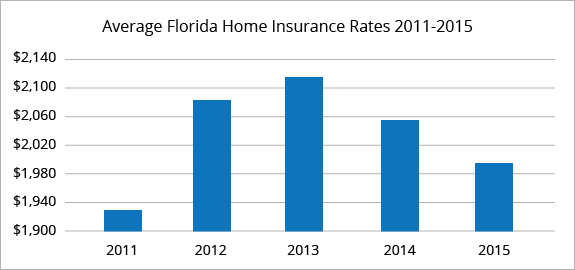A life insurance coverage policy is a contract with an insurer. In exchange for premium payments, the insurer offers a lump-sum payment, referred to as a survivor benefit, to recipients upon the insured's death. Typically, life insurance coverage is selected based on the needs and goals of the owner. Term life insurance typically offers protection for a set amount of time, while permanent insurance coverage, such as entire and universal life, supplies lifetime coverage.
1 There are lots of ranges of life insurance coverage. Some of the more typical types are talked about listed below. Term life insurance is created to offer financial protection for a particular period of time, such as 10 or twenty years. With conventional term insurance coverage, the exceptional payment amount stays the exact same for the coverage period you choose.
Term life insurance is usually less pricey than irreversible life insurance. Term life insurance coverage profits can be used to replace lost prospective earnings throughout working years. This can supply a safeguard for your beneficiaries and can likewise assist guarantee the household's financial objectives will still be metgoals like settling a mortgage, keeping an organisation running, and spending for college.
Universal life insurance coverage is a type of permanent life insurance developed to supply life time protection. Unlike whole life insurance, universal life insurance policies are flexible and might allow you to raise or lower your premium payment or coverage quantities throughout your life time. Furthermore, due to its lifetime protection, universal life typically has greater premium payments than term.
Not known Details About What Is A Whole Life Insurance Policy
Another common use is long term earnings replacement, where the requirement extends beyond working years. Some universal life insurance item develops focus on providing both death advantage coverage and building cash value while others focus on offering ensured death benefit protection. Whole life insurance coverage is a kind of long-term life insurance created to supply life time coverage.
Policy premium payments are usually fixed, and, unlike term, whole life has a cash value, which functions as a savings part and might collect tax-deferred over time. Entire life can be utilized as an estate planning tool to assist maintain the wealth you plan to move to your recipients. Income replacement during working years Wealth transfer, earnings defense and some styles concentrate on tax-deferred wealth build-up Wealth transfer, conservation and, tax-deferred wealth build-up Designed for a specific duration (normally a variety of years) Flexible; typically, for a lifetime For a life time Generally less costly than permanent Normally more expensive than term Generally more expensive than term Typically fixed Flexible Generally fixed Yes, usually earnings tax-free Yes, typically earnings tax-free Yes, typically earnings tax-free No No2 No No Yes Yes Yes, Fidelity Term Life Insurance3 Yes, Universal Life Insurance coverage, primarily concentrated on survivor benefit defense No, conventional Whole Life Insurance is not currently offered Insurance companies utilize rate classes, or risk-related classifications, to identify your premium payments; these categories do not, nevertheless, affect the length or quantity of protection.
Tobacco usage, for instance, would increase threat and, for that reason cause your premium payment to be greater than that of wesley foundation jobs someone who doesn't use tobacco.
Life insurance coverage is a contract between an insurance company and an insurance policy holder in which the insurance provider guarantees payment of a death benefit to named recipients when the insured dies. The insurer promises a death advantage in exchange for premiums paid by the insurance policy holder. Life insurance coverage is a lawfully binding agreement.
What Is The Difference Between Term And Whole Life Insurance for Beginners
For a life insurance policy to stay in force, the policyholder should pay a single premium in advance or pay routine premiums gradually. When the insured dies, the policy's named recipients will receive the policy's face worth, or survivor benefit. Term life insurance policies expire after a specific number of years.
A life insurance policy is just as good as the monetary strength of the business that releases it. State warranty funds might pay claims if the provider can't. Life insurance coverage provides financial support to surviving dependents or other recipients after the death of a guaranteed (what is supplemental life insurance). Here are some examples of people who may need life insurance coverage: If a moms and dad passes away, the loss of his or her earnings or caregiving skills might produce a financial challenge.
For kids who require lifelong care and will never ever be self-sufficient, life insurance can make sure their needs will be satisfied after their parents die. The death advantage can be utilized to money a special requirements trust that a fiduciary will handle for the adult kid's advantage. which is better term or whole life insurance. Married or not, if the death of one adult would mean that the other might no longer manage loan payments, maintenance, and taxes on the residential or commercial property, life insurance coverage might be an excellent concept.
Numerous adult kids compromise by taking time off work to look after a senior parent who requires assistance. This aid might likewise consist of direct monetary assistance. Life insurance coverage can help compensate the adult kid's expenses when the parent passes away. Young person without dependents rarely need life insurance coverage, but if a parent will be on the hook for a child's debt after his/her death, the kid may wish to bring enough life insurance to pay off that debt.
The Ultimate Guide To Which Of These Factors Does Not Influence An Applicant's Need For Life Insurance?
A 20-something adult may buy a policy even without having dependents if there is an expectation to have them in the future. Life insurance can offer funds to cover the taxes and keep the full worth of the estate intact.' A small life insurance policy can offer funds to honor a liked one's passing.
Rather of selecting in between a pension payout that uses a spousal benefit and one that doesn't, pensioners can pick to accept their complete pension and use a few of the cash to purchase life insurance coverage to benefit their partner. This strategy is called pension maximization. A life insurance coverage policy can has 2 primary components - a death benefit and a premium.

The survivor benefit or stated value is the quantity of cash the insurance provider ensures to the beneficiaries recognized in the policy when the insured passes away - how long do you have to have life insurance before you die. The insured may be a moms and wesley timeshare dad, and the beneficiaries may be their children, for instance. The guaranteed will select the wanted survivor benefit quantity based on the beneficiaries' projected future needs.
Premiums are the cash the policyholder pays for insurance. The insurance company needs to pay the survivor benefit when the insured dies if the insurance policy holder pays the premiums as needed, and premiums are determined in part by how most likely it is that the insurance company will need to pay the policy's survivor benefit based upon the insured's life span.

The Basic Principles Of What Is Whole Life Insurance Policy
Part of the premium likewise approaches the insurer's business expenses. Premiums are greater on policies with larger death advantages, people who are greater danger, and long-term policies that accumulate cash worth. The cash value of permanent life insurance serves two functions. It is a savings account that the insurance policy holder can use during the life of the guaranteed; the cash collects on a tax-deferred basis.
For instance, the insurance policy holder might get a loan versus the policy's money worth and have to pay interest on the loan principal. The insurance policy holder can also utilize the money value to pay premiums or purchase extra insurance coverage. The cash value is a living advantage that remains with the insurance company when the insured passes away.